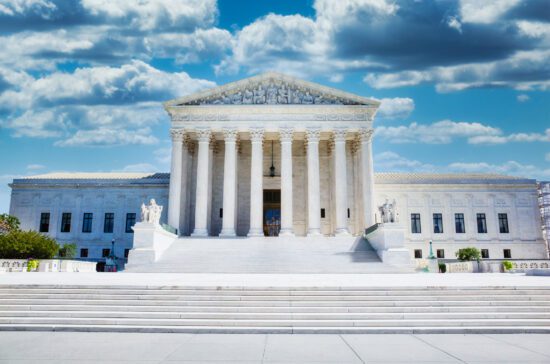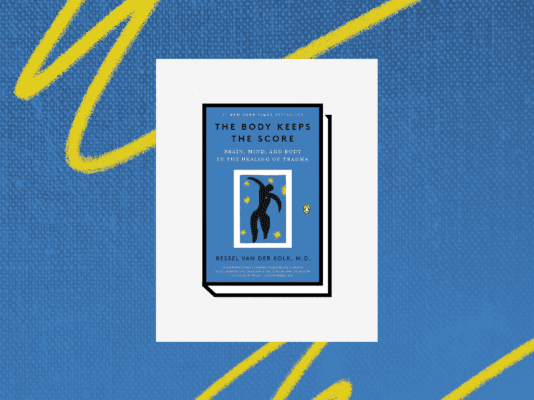Southern Baptists in 2023 find ourselves mostly out of step with the values of the wider American culture. This is especially true when it comes to sexual ethics and how best to understand marriage and the family. It’s not that Baptists have changed our views. Rather, in recent decades, our nation has drifted increasingly into a post-Christian moral consensus.
For over a century, the Ethics and Religious Liberty Commission (ERLC) and its forerunners have played a key role in helping Southern Baptists navigate threats to a biblical vision of marriage, the family, and human sexuality. As American culture has moved further into decadence, the ERLC has refined its vision, educated Baptists about biblical ethics, and advocated faithfully for our views in the public square.
Alcohol and family stability
In the early 20th century, Southern Baptist views on marriage and family were mostly aligned with majority opinions in American culture. Nevertheless, there were threats to flourishing families. One of the most pronounced was alcohol abuse, which Baptists believed contributed to the destruction of individuals and the dissolution of the family. Many American evangelicals had begun advocating for total abstinence from beverage alcohol following the American Civil War, when countless thousands of veterans who suffered from alcoholism struggled with reintegrating into civilian life.
In 1908, Southern Baptists established a Committee on Temperance, which became the first forerunner of the ERLC. In 1913, a newly formed Social Service Commission (SSC) absorbed the older committee, led by A.J. Barton. Southern Baptists and other evangelicals celebrated the ratification of the 18th Amendment in 1919, which prohibited the “manufacture, sale, or transportation of intoxicating liquors.” Under Barton’s leadership, the SSC encouraged Southern Baptists to adopt several anti-alcohol resolutions and advocated for the Baptist consensus in the political sphere.
Prior to mid-century, the Commission also led Southern Baptists to pass resolutions against other social ills they believed threatened the family, corrupted children, and undermined public morality including gambling and immoral content in motion pictures.
The Christian Life Commission and the sexual revolution
In 1953, the SSC was renamed the Christian Life Commission (CLC), a change that reflected a more holistic emphasis on applied ethics for Christian faithfulness and paved the way for published resources and conferences. In the period between 1950 and 1980, the CLC mostly emphasized race relations and matters of war and peace. The key figure during these years was Foy Valentine, an ethicist who served as president from 1960 to 1987.
Valentine’s presidency overlapped with the advent of the sexual revolution that led to the dissolution of the traditional biblical consensus about marriage, the family, and sexuality in America. No-fault divorce, second-wave feminism, sexual promiscuity, homosexuality, and cohabitation were each becoming increasingly acceptable, especially among the baby boomers and their children.
The CLC struggled at times to offer a clear biblical witness in response to some of these trends. Conferences and literature addressed issues that threatened the family including alcohol and drug abuse, poverty, divorce, cohabitation, and sexual promiscuity. However, CLC leaders sometimes framed abortion as a birth control issue, remained mostly ambivalent about homosexuality, and occasionally invited speakers who promoted progressive sexual ethics to conferences.
By the mid-1970s, American evangelical concerns about sexual ethics were inspiring increased political advocacy among moral traditionalists. Many Southern Baptists shared the cares of this politically active Religious Right and desired a more full-throated affirmation of traditional biblical values.
The Conservative Resurgence and social conservatism
Though the Conservative Resurgence which began in 1979 was primarily about promoting the truthfulness of Scripture, the vast majority of the conservative participants also believed that the Bible spoke clearly to God’s design for sexuality. Throughout the 1980s, Southern Baptists passed numerous resolutions that affirmed traditional views of sexual ethics including marriage between one man and one woman, sex within the covenant of marriage, the evils of pornography, the aberrant nature of homosexuality, and gender complementarity in the family and the Church.
However, the CLC was sometimes on the opposite side of these resolutions. Under the leadership of presidents Valentine and Larry Baker, the CLC remained ambivalent about both abortion and homosexuality. The CLC was also closely aligned with the gender egalitarianism advocated by moderate Southern Baptists and embodied in the failed Equal Rights Amendment.
By 1988, conservatives had gained control of the CLC’s board and elected Richard Land as president of the commission. Under Land’s leadership (1988-2013), the CLC’s positions were more closely aligned with the conservative consensus of grassroots Southern Baptists. Southern Baptists defunded the Baptist Joint Committee in 1990. In 1997, the CLC was transformed into the ERLC, which was responsible for addressing both social ethics and religious liberty concerns on behalf of Southern Baptists.
ERLC and the culture wars
In the early 1990s, the sociologist James Davison Hunter and politician Pat Buchanan argued memorably that conservative Christians and progressive secularists, as well as their allies, were engaged in a “culture war” that often centered around marriage, the family, and human sexuality.
Under Land’s leadership, the ERLC became a leading voice among social conservatives committed to a biblical vision for sexual ethics. For example, Land advocated for the Defense of Marriage Act (1996), which passed Congress and was signed by President Clinton. The ERLC also purchased a second office in Washington, D.C., to better facilitate advocacy for biblical convictions at the national level.
During the 1990s and into the 2000s, Southern Baptists continued to pass resolutions affirming orthodox Christian views, though this time with the support and encouragement of the ERLC. Commission publications and conferences also championed the conservative views of Southern Baptists. In addition, Land served on the committees that amended the Baptist Faith and Message in 1998 to include a statement that affirmed a traditional view of the family and revised the confession in 2000 so that it clearly rejected homosexuality, pornography, and gender egalitarianism.
A key feature of both the presidencies of George W. Bush (2001–2009) and Barack Obama (2009–2017) was the culture war that increasingly coalesced around the issue of gay marriage and celebration of LGBTQ+ lifestyles. Land served as a key counselor to Bush and spoke forthrightly against the ordination of homosexuals and the sex abuse scandal in the Roman Catholic Church. He also authored a book titled For Faith and Family: Changing America by Strengthening the Family (2002), promoted social conservatism on his daily radio show, and encouraged “values voters” to mobilize to vote for socially conservative candidates and ballot measures in 2004. Further, the ERLC supported state marriage amendments that defined marriage as between one man and one woman.
In 2013, Land retired from the presidency of the ERLC, and Russell Moore (2013–2021) began his tenure as president. Moore’s administration overlapped with a series of notable defeats for cultural conservatism in the public square. In 2015, the U.S. Supreme Court decision Obergefell v. Hodges required states to recognize same-sex marriage. Soon, progressive activists and corporations began to push for increasing normalization of LGBTQ+ lifestyles and to exert political or economic pressure on individuals, companies, and even states that refused to embrace revisionist views of marriage, the family, and human sexuality.
Under Moore’s leadership, the ERLC remained committed to equipping Southern Baptists and advocating on behalf of a biblical vision of these increasingly contested issues. The ERLC website was expanded and content was published to help Southern Baptists and other believers to think biblically about sexual ethics. Advocacy at the state and national level continued. Moore and ERLC ethicist Andrew Walker edited a series of books titled Gospel for Life that addressed a whole range of ethical issues including marriage, same-sex marriage, adoption, parenting, and pornography. Moore also published several other books addressing adoption, marriage, and same-sex marriage, while Walker published a book offering a Christian response to transgenderism.
Sexual abuse in the SBC
At the same time the ERLC was equipping believers to engage with the growing sexual decadence of American culture, the commission was also addressing sexual sins and crimes in the Southern Baptist camp. In 2019, the Houston Chronicle published a five-part series that alleged a pattern of abuse and cover-ups dating back over two decades. During the final two years of Moore’s presidency, the ERLC focused increased attention addressing the scandal of sexual abuse among Southern Baptist churches.
In 2019, the ERLC hosted a panel discussion on sex abuse at the SBC Annual Meeting, dedicated its national conference that year to the same topic, and launched an initiative called Caring Well to equip congregations to prevent abuse and respond faithfully when abuse occurs. The ERLC continued to partner with appointed sex abuse study committees, task forces, and third-party groups that were tasked with claims of abuse and cover-ups, as well as make recommendations on how best to move forward.
Conclusion
Though American culture continues to drift morally and the issues remain contentious, Southern Baptists steadfastly affirm a biblical understanding of marriage, the family, and human sexuality. Our convictions are rooted in Scripture, reflect God’s divine design, and result in authentic human flourishing. Though our nation has reached a post-Christian moral consensus on these matters for the time being, the ERLC continues to serve Southern Baptists faithfully by helping us form our convictions and advocate on our behalf in the public square. By God’s grace, we will maintain a consistent public witness—to the glory of God and in the hope of the renewal of our nation.









